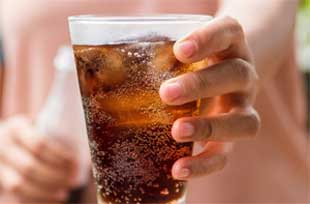- Home
- Editorial
- News
- Practice Guidelines
- Anesthesiology Guidelines
- Cancer Guidelines
- Cardiac Sciences Guidelines
- Critical Care Guidelines
- Dentistry Guidelines
- Dermatology Guidelines
- Diabetes and Endo Guidelines
- Diagnostics Guidelines
- ENT Guidelines
- Featured Practice Guidelines
- Gastroenterology Guidelines
- Geriatrics Guidelines
- Medicine Guidelines
- Nephrology Guidelines
- Neurosciences Guidelines
- Obs and Gynae Guidelines
- Ophthalmology Guidelines
- Orthopaedics Guidelines
- Paediatrics Guidelines
- Psychiatry Guidelines
- Pulmonology Guidelines
- Radiology Guidelines
- Surgery Guidelines
- Urology Guidelines
American Heart Association warns kids against consumption of diet beverages

A recent advisory from the American Heart Association, published in the journal Circulation has counseled against long-term and regular consumption of diet beverages, especially in children. Self-reported surveys demonstrate that adults and young people are drinking less of both sugary and diet drinks, and a panel of health experts agrees that’s a good idea.
The group consisting of Rachel K. Johnson, a professor emeritus of nutrition at the University of Vermont, and colleagues urged people to replace sugary and diet drinks with plain, carbonated or unsweetened flavored water.
The committee analyzed several studies -- some of which demonstrated associations between low-calorie sweetened drinks and health problems including stroke, dementia, and weight gain -- and concluded that the science is still vague to draw conclusions about the health effects of diet drinks.
The advisory acknowledges the reality that many people might use diet drinks to wean off sugar-loaded drinks if they feel they can’t make the wholesale leap to water. “This approach may be particularly helpful for individuals who are habituated to a sweet-tasting beverage and for whom water, at least initially, is not a desirable option,” the report said.
Also Read: Diet Soft Drink intake has high risk of Stroke, Dementia
When it came to sugar-laden drinks, adults in 2000 drank about 16.2 ounces a day, according to the data. That declined to 8.4 ounces a day by 2014. Kids reported drinking 19 ounces each day in 2000, and 8.6 ounces a day in 2014.
In 2016, the AHA issued its first scientific statement warning about added sugars intake for kids, saying children and teens should consume no more than 8 ounces of sugary beverages a week.
“We hear a lot about potential adverse effects of low-calorie sweeteners, but much of it is speculation. We have to go with the available evidence,” said Alice H. Lichtenstein, vice chair of the writing group and director of the Cardiovascular Nutrition Laboratory at Tufts University in Boston. “The best advice we can give at this time is to ramp down the intake and avoid excess consumption.”
The advisory was more cautious in its advice for children because there is “virtually no data” on the long-term effects of low-calorie drinks, said writing group member Dr. Frank Hu, chair of the nutrition department at Harvard University and professor of nutrition and epidemiology.
“One question we discussed is whether for children who are obese and who drink regular soda on a regular basis, is it OK for them to drink diet soda instead?” Hu said. “The consensus is that for short-term weight control, it’s OK. Certainly, it’s not the best alternative … because we all know there are more healthy alternatives, such as water, low-fat and fat-free milk.”
The report included an exception for one specific population: children with diabetes. The authors say those children who eat a balanced diet and who are closely monitoring their blood sugar may help keep their levels in check by substituting low-calorie drinks for sugary ones when needed.
The new science advisory included eight low-calorie sweeteners – six currently approved by the Food and Drug Administration and two extracts from plants.
For more information follow the link: https://doi.org/10.1161/CIR.0000000000000569

Disclaimer: This site is primarily intended for healthcare professionals. Any content/information on this website does not replace the advice of medical and/or health professionals and should not be construed as medical/diagnostic advice/endorsement or prescription. Use of this site is subject to our terms of use, privacy policy, advertisement policy. © 2020 Minerva Medical Treatment Pvt Ltd